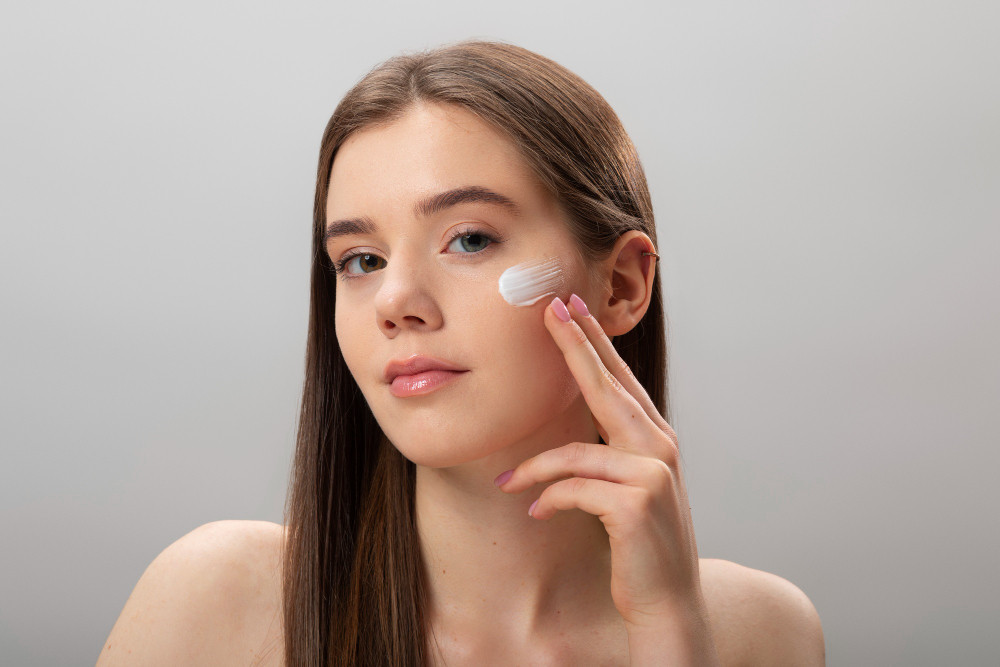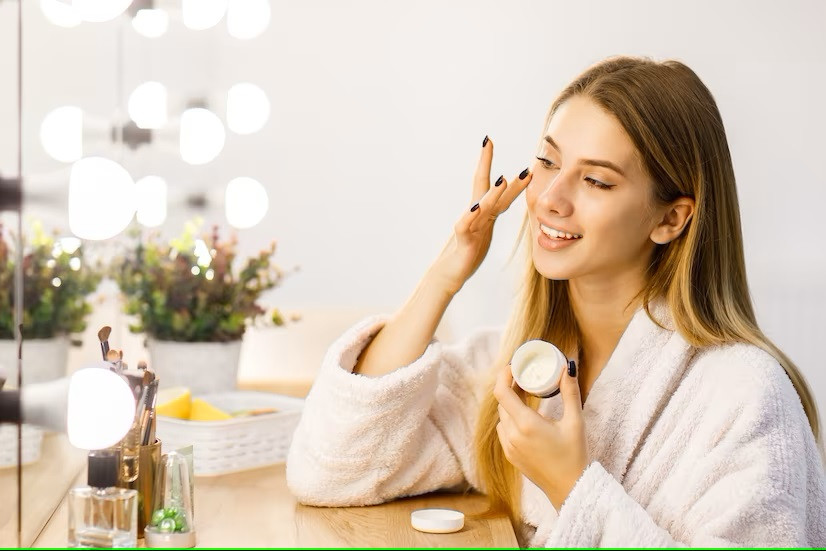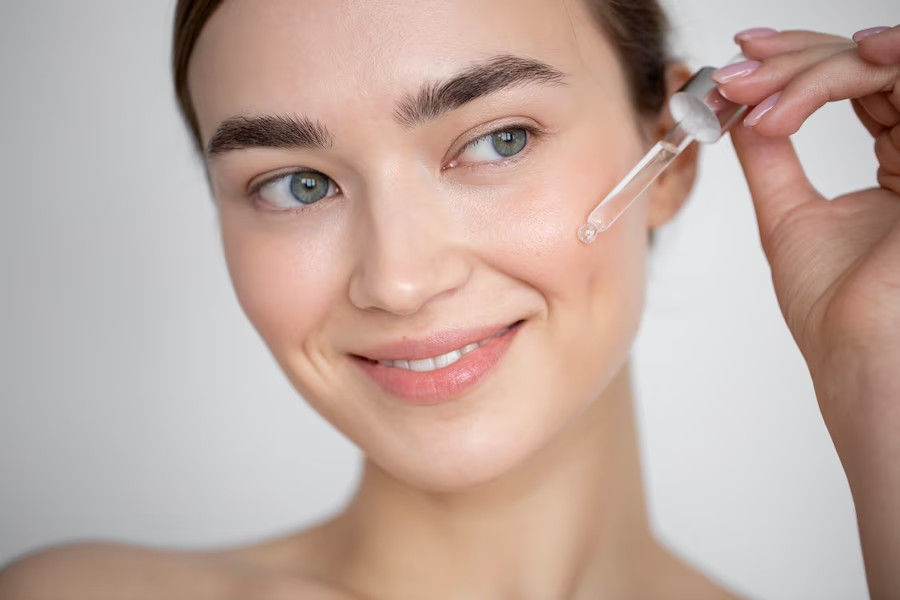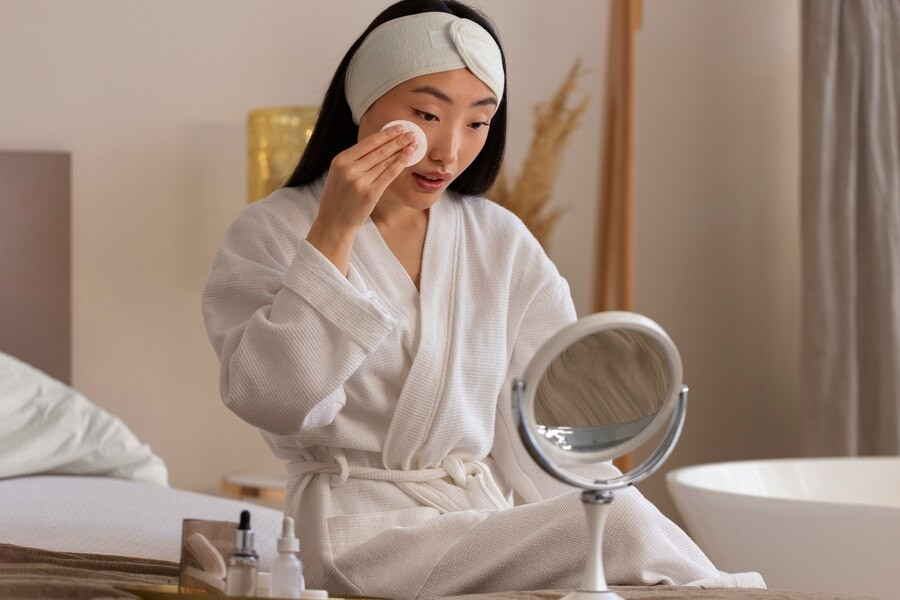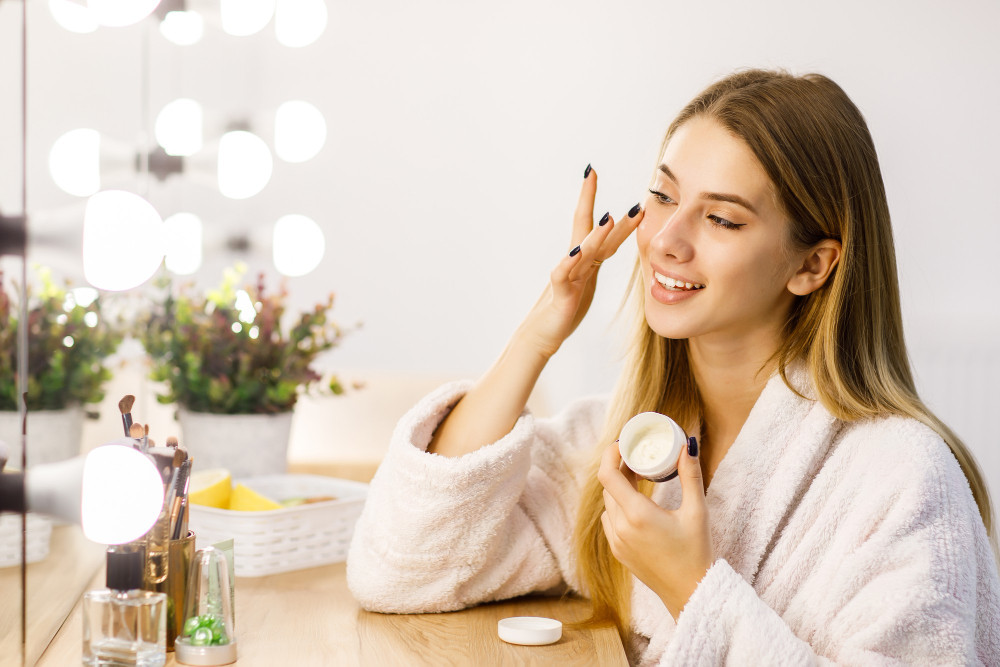Peptides are a common ingredient in anti-aging skincare products. Nowadays, peptide-containing skincare is available in the form of cleansers, serums, and moisturizers that can be tailored to your specific needs and skin condition.
What are peptides?
Peptides occur naturally in the skin and are produced by the body. They are short chains of amino acids that form proteins like collagen. Peptides are essential for various biological processes, including wound healing and intercellular communication.
Peptides can be obtained from various sources, including food, supplements, and medications, in addition to those produced naturally by the body.
Benefits of peptides in skincare
Peptides are a crucial component that makes up collagen. As collagen production decreases with age, the skin begins to show signs of aging. Collagen molecules are too large for the skin to absorb directly, so many people seek peptides from collagen-rich bone broth, collagen supplements, or peptide-based skincare products.
Some benefits of peptides in skincare include:
Improves the skin barrier
The skin barrier is the outermost layer of skin that protects against free radicals, bacteria, ultraviolet rays, pollution, and other toxins. Factors like pollution, cigarette smoke, excessive exfoliation, and sleep deprivation can damage the skin's barrier. Using peptides in skincare strengthens the skin barrier, making the skin healthier.
Reduces wrinkles
Peptides promote the production of collagen and elastin, making the skin and lips suppler and healthier. They are known to stimulate skin repair and prevent signs of aging, such as wrinkles and fine lines, from appearing.
Improves skin elasticity
Peptides are not only constituents of collagen but also of elastin fibers which give the skin a firm appearance. Elastin fibers make the skin appear firmer and softer. Peptides in skincare can promote skin repair and prevent signs of aging.
Reduces inflammation and accelerates wound healing
Peptides can accelerate wound healing by stimulating collagen production. Additionally, they can act as antioxidants, reducing inflammation.
Peptides can combine well with other active ingredients like vitamin C and hyaluronic acid. Vitamin C is an antioxidant that helps fight pollutants that come into contact with the skin, and hyaluronic acid hydrates the skin's outer layer, keeping it supple and moisturized.
Peptides in skincare are also safe to use by pregnant and nursing women. However, if pregnant or breastfeeding women want to use peptide supplements, they should first consult their doctor.
If you need medical advice or consultation, you can either visit a doctor or make use of the consultation features that are available in the Ai Care application by downloading the Ai Care application from the App Store or Play Store.
Looking for more tips and health tricks, first aid, and home remedies? Click here!
- Sean Edbert Lim, MBBS
Gallagher, G. (2023). Peptides and Your Skin Care Routine. Available from: https://www.healthline.com/health/peptides-for-skin#
Kubala, J. (2023). What Are Peptides and What Are They Used For?. Available from: https://www.health.com/what-are-peptides-7106093
Leonard, J. (2023). What to know about peptides for health. Available from: https://www.medicalnewstoday.com/articles/326701
Sreenivas, S., King, L. (2024). Peptides: Types, Uses, and Benefits. Available from: https://www.webmd.com/a-to-z-guides/what-are-peptides
Health Editorial Team. (2023). What Are Peptides? What To Know About This Anti-Aging Ingredient. Available from: https://www.health.com/beauty/skincare/what-are-peptides

